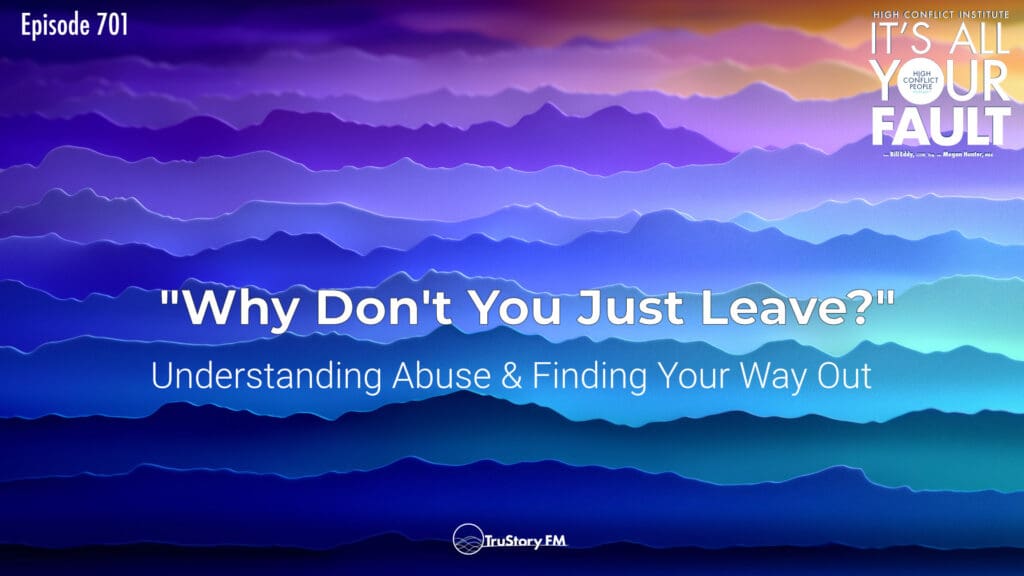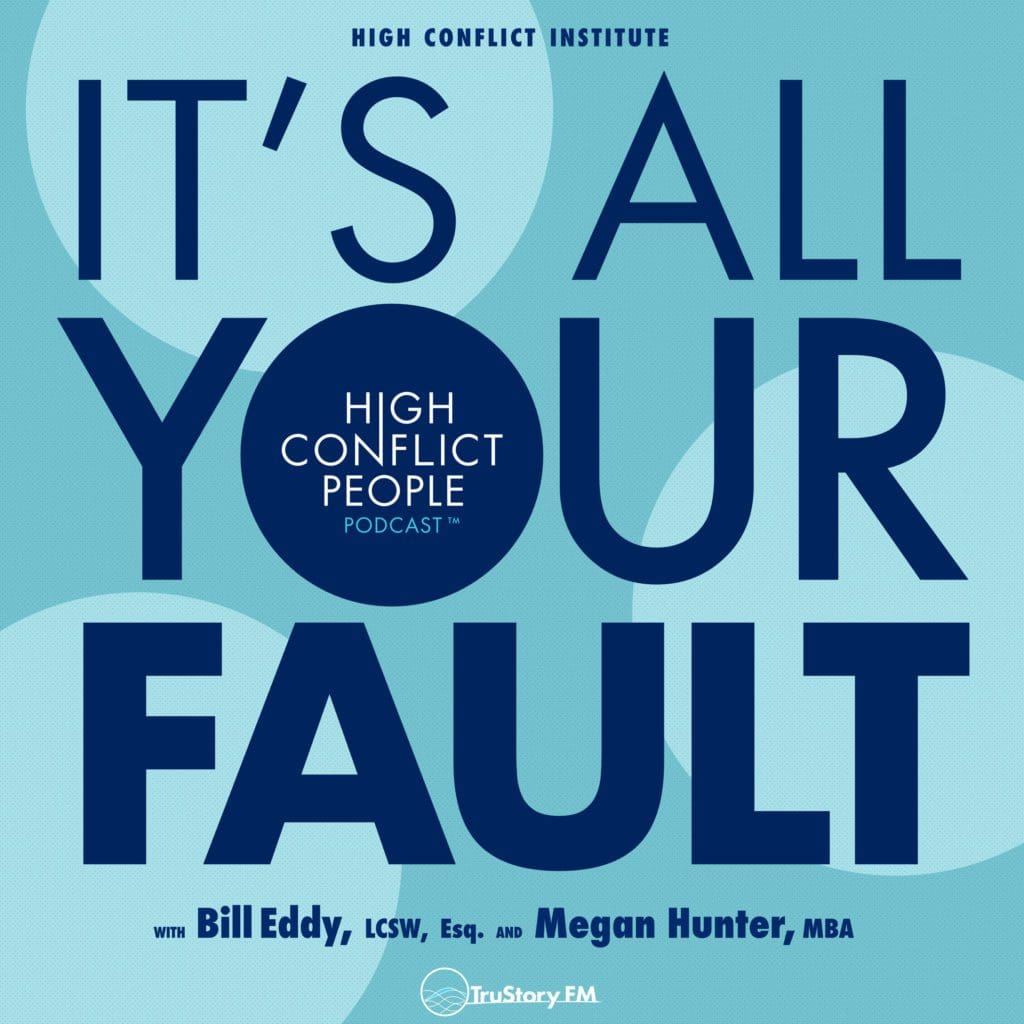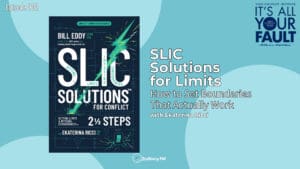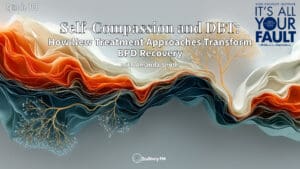Understanding Why People Stay in Abusive Relationships
Bill Eddy and Megan Hunter return for their seventh season of It’s All Your Fault to tackle a challenging but critical topic: why people stay in abusive relationships. Drawing from their extensive experience at the High Conflict Institute, they explore the complex psychological, financial, and social factors that make leaving difficult—even for those with resources and support networks.
The Power of Coercive Control
The episode delves into how coercive control operates in relationships, using the high-profile example of FKA Twigs and Shia LaBeouf. Bill and Megan examine how abusers use tactics like love bombing, isolation, and emotional manipulation to maintain power. They emphasize that this pattern appears not just in romantic relationships, but in workplaces, families, and elder care situations.
Understanding Personality Patterns
The discussion explores how people with cluster B personality traits may engage in controlling behaviors. Bill and Megan carefully explain the connection between personality patterns and abusive behavior, while emphasizing that not everyone with these traits becomes abusive. They examine how cultural factors and early life experiences can influence the development of controlling behaviors.
Breaking Free and Finding Help
The hosts share practical advice for recognizing abuse and seeking help, highlighting the importance of self-talk and building support networks. They discuss how professionals and concerned individuals can better support those in abusive situations, emphasizing the need for careful investigation rather than quick dismissal of abuse claims.
Questions we answer in this episode:
- Why do capable, independent people stay in abusive relationships?
- How does coercive control work in different types of relationships?
- What role do personality patterns play in abusive behavior?
- How can professionals better identify and help abuse victims?
- What are the first steps to breaking free from an abusive relationship?
Key Takeaways:
- Abusive relationships often involve complex psychological manipulation
- Financial and social factors can make leaving extremely difficult
- Self-doubt and eroded self-esteem are common barriers to leaving
- Support systems are crucial for helping people leave abusive situations
- Professional help and community awareness can make a significant difference
This episode provides valuable insights for anyone trying to understand abusive relationships—whether personally affected or supporting others. Bill and Megan’s expertise shines through as they offer practical guidance while maintaining sensitivity around this complex topic.
Note: Content warning for discussions of domestic violence and abuse. Some listeners may find portions of this episode challenging.
Links & Other Notes
- Reach out to the U.S. Domestic Violence Hotline if you’re in an abusive relationship and need help via their website or call 800-799-7233
- BOOKS
- ARTICLES
- COURSES
- New Ways for Couples & Families (for strengthening or saving relationships, and helping their kids, if any)
- Conflict Influencer website alert signup (coming July 8)
- OUR WEBSITE: https://www.highconflictinstitute.com/
- Submit a Question for Bill and Megan
- All of our books can be found in our online store or anywhere books are sold, including as e-books.
- You can also find these show notes at our site as well.
Note: We are not diagnosing anyone in our discussions, merely discussing general patterns of behavior. Nor are we providing legal or therapeutic advice. Please seek the assistance of your local professionals to seek help.











